[Shell ginger tincture] If you make and sell it, it violates the “Liquor Tax Law”! ?? Imprisonment or fines.
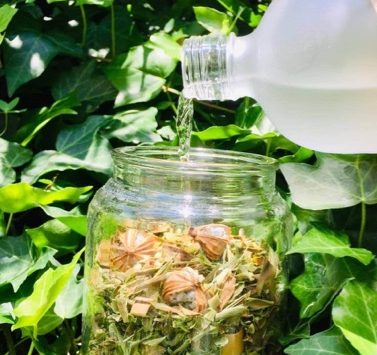
Herb tincture is a simple way to use herbs by simply soaking them in alcohol.
A very convenient item as a versatile herbal item such as folk medicine, herbal liquor, lotion, and insect repellent spray.
It has a long history both in Japan and abroad, and it has become a culture, and many people enjoy making it.
I think there are many people who can make homemade plum wine when the plum season comes around. Plum is also one of the useful plants, so it can be said that this is also a tincture of herbs.
In fact, in modern Japan, it may be illegal to make and sell.
Since tincture has a wide range of uses such as medicine, cosmetics, food, beverages, and alcohol,
There is a possibility of violating the “medicine law”, “alcohol law” and “food law”.
Tincture explains the “alcohol law” that cannot be avoided because of alcohol extraction.
The law on liquor is stipulated in the “Liquor Tax Law”.
If you add the herbs picked in the garden to the alcohol you bought, it becomes “brewing” .
If you don’t have a brewing license, you’ll end up with “moonshine” !
It’s a little surprising! ??
If you sell it, it will be illegal to sell alcohol without permission.
To prevent that from happening
First of all, what are alcoholic beverages under the Liquor Tax Law? It is important to understand!
In a nutshell, “alcoholic beverages are beverages containing 1% or more of alcohol.”
Under the Liquor Tax Law, liquor is a beverage with an alcohol content of 1% or more (a beverage that can be made into a beverage with an alcohol content of 1% or more by mixing water etc. to the extent that it can be used for drinking, or dissolved in water etc. It includes powdered beverages that can be made into beverages with an alcohol content of 1% or more.) [Article 2 of the Liquor Tax Law, Article 2 of the Law Interpretation Notification]
Quoted from [National Tax Agency Q & A] <>
And the point is the word “miscibility” .
Since tincture is “mixed” with herbs in sake with an alcohol content of 1% or more, it means that it is brewed without a license (moonshine).
It is a violation of the Liquor Tax Law to “make” something that is a mixture of alcohol and something. (Sake brewing)
→ Imprisonment for up to 10 years or a fine of up to 1 million yen
Tincture is brewed sake, so if you sell it, it will be sold without a license.
“Selling” something mixed with liquor and violating the Liquor Tax Law (liquor sales)
→ Imprisonment for up to 1 year or a fine of up to 500,000 yen
In the first place, at the time of selling moonshine liquor, it was a problem before the liquor sales license,
If both brewing and selling are illegal,
Will it be imprisonment for up to 15 years or a fine of up to 1.5 million yen?
It would be scary if you did it without knowing it.
Q Are there any penalties for manufacturing (sales) alcoholic beverages without a license?
A Those who manufacture alcoholic beverages without a license to manufacture alcoholic beverages will be punished by imprisonment with work for not more than 10 years or a fine of not more than 1 million yen, and those who sell alcoholic beverages without a license to sell alcoholic beverages will be sentenced to 1 year. You may be sentenced to the following imprisonment or a fine of up to 500,000 yen.
Quoted from [National Tax Agency Q & A] <>
Then,
Is it okay for many people to make similar plum wine as well as shell ginger tincture?
Mixing something with liquor means making new liquor, so you have a brewing license,
In fact, the National Tax Agency has stipulated the conditions for “exceptionally not manufacturing.”
If you organize the points easily,
・ Make it for your own use. <> ・ Alcohol content is 20 degrees or more. <> ・ Do not mix rice, wheat, grapes, etc. <> ・ Do not sell
If you keep this, there is no problem.
[Homebrewing] <> Q1 Is there a problem for consumers to make plum wine at home?
A The act of soaking plums in shochu to make plum wine is considered to be a new production of alcoholic beverages because it is a mixture of alcoholic beverages and other articles, and the mixed product is alcoholic beverages. Exceptionally, when a person mixes alcoholic beverages (limited to alcoholic beverages with an alcohol content of 20% or more and liquor tax has been levied) other than the following items for drinking by himself / herself. I have decided not to. <> In addition, since this regulation is for alcoholic beverages for consumers to drink by themselves, it is prohibited to sell this alcoholic beverage.
1 Rice, wheat, foxtail millet, corn, koryan, millet, Japanese millet or starch or these koji
2 grapes (including mountain grapes)
3 Amino acids or salts thereof, vitamins, nucleic acid decomposition products or salts thereof, organic acids or salts thereof, inorganic salts, pigments, fragrances or liquor residue
Basis laws and regulations: Liquor Tax Law Article 7, Article 43, Paragraph 11, Law Enforcement Ordinance Article 50, Law Enforcement Regulations Article 13, Paragraph 3
Quoted from [National Tax Agency Q & A] <>
If you follow the conditions, it’s okay to make it, but what about sharing it with friends and acquaintances?
Regarding this, the government clarified the opinion in the Diet reply in 1997 that “providing to acquaintances etc. free of charge is not a sale and does not violate it .”
I am concerned about the range of “etc.” such as acquaintances, but basically there is no problem with the free transfer if you know the other party.
The point is that it is “free”.
In other words, if you receive money or something of value, it will be illegal, so
When handing it over, tell them that it is free of charge.
When you receive it, say “Thank you!”
Under the Liquor Tax Law (Law No. 6 of 1952), it is assumed that by mixing other goods with liquor, the applicable tax rate may fall under different liquors, so the tax burden is borne. From the viewpoint of fairness and ensuring liquor tax revenue, the act of mixing other goods with liquor is regarded as liquor production in principle, and a liquor production license must be obtained. <> However, in Article 43, Paragraph 11 of the same Act, “In the case where alcoholic beverages are mixed with other goods (excluding alcoholic beverages) for consumption by alcoholic beverage consumers themselves, as specified by Cabinet Order. ], It is not considered to be the production of alcoholic beverages, and in this case, it is not necessary to obtain a license to produce alcoholic beverages. <> In addition, in paragraph 12 of the same Article, alcoholic beverages subject to paragraph 11 of the same Article shall not be sold, but providing such alcoholic beverages to acquaintances, etc. free of charge is the same. It does not fall under the sale prescribed in Article 12, and is not considered to violate the provisions of the same paragraph.
Quoted from the answer to the question about the Liquor Tax Law submitted by Seiji Osaka, a member of the House of Representatives (June 1997) <>
-To prevent illegality in making herbal tincture-
“Make” point
・ Soak in alcoholic beverages with an alcohol content of 20% or higher. <> ・ Use alcohol that has been taxed with liquor tax. <> -Use materials other than those specified, such as rice, wheat, and grapes.
“Use” point
・ For private use. <> ・ Free of charge to friends and acquaintances.
“Sell” points
・ Sales are illegal! Do not do it. <> ・ Do not receive compensation.
actually,
There is a way to sell handmade herbal tinctures if you meet certain conditions.
This is a method offered at restaurants, but I plan to write this on my blog soon. (I have written!)
By the way , with the Tsukimo Herb Tincture Handmade Kit “Tsuki no Shizuku” , it is legally okay for you to make your own herb tincture at home, use it for your own use, and share the herb tincture with your loved ones for free. Rest assured!
that’s all
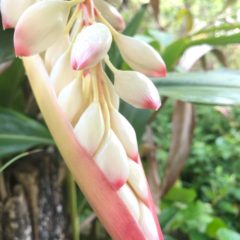
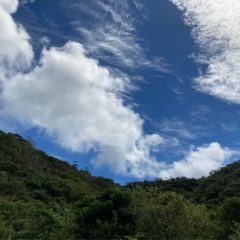
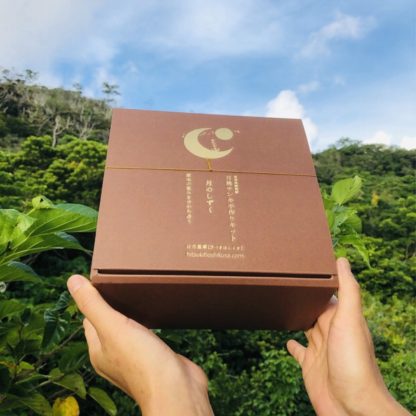
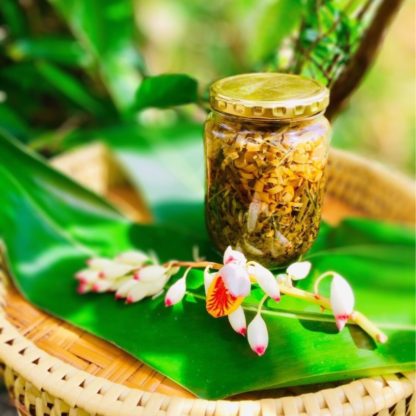
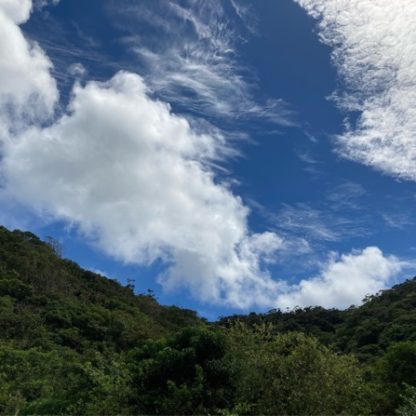
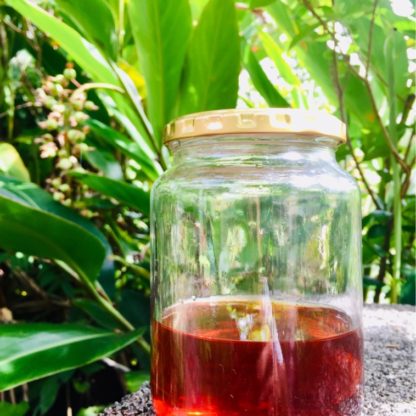
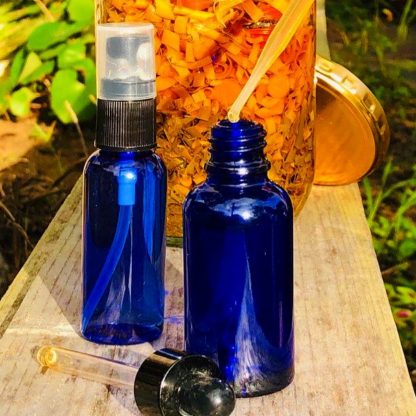
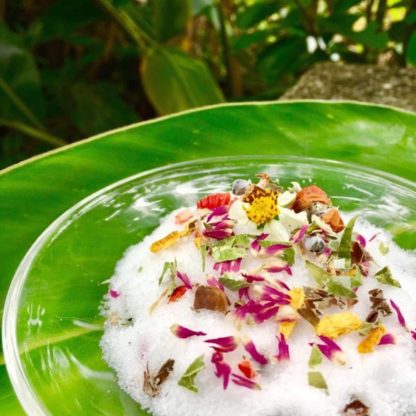
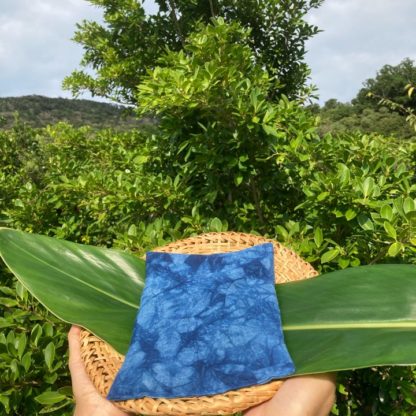
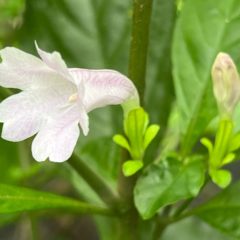
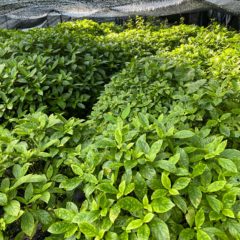

No comments yet.